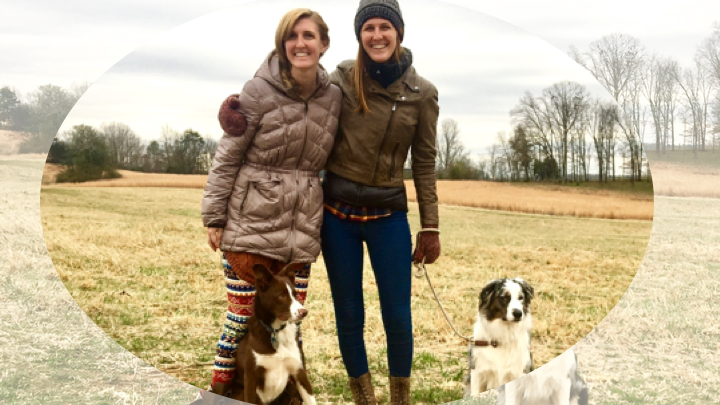From Rivals to Friends

I grew up with several sisters, and we were all very competitive in nature. I have distinct memories of the ways that we tried to gain advantage over one another and perceive that we were “winning.” We would make every little thing into a competition. Our contests ranged from who could arrange food on our plates in the most appealing manner to who could eat their candy bar the slowest. When the other person was out of candy, we would make loud ‘yummy’ candy eating sounds while chanting, “haha I still have candy and you don’t.” This mentality had us seeing each other much more like rivals than friends. We would call dibs constantly on our favorite names for Barbies and compete on who was the best singer, painter, soccer player, and more. There was a constant comparison, and sharing was infrequent as it threatened our ability to “win” in the relationship. It feels silly looking back, but I can still remember the feeling of rivalry that made it hard to share anything personal with each other, along with the silly revenge acts like ditching each other in a department store and freezing each other’s belongings in blocks of ice. As I have become closer friends with my siblings in adulthood, I have noticed that I don’t feel threatened when we have similar interests. As children, we often would say things like, “that’s my thing you can’t have it!” Yet, within our friendship now, I find myself feeling pleasure when we have shared interests like studying the same theory in therapy, enjoying the same hobby, or pursuing similar goals in life like training a therapy dog. This change from feeling threatened at similarities to pleasure intrigued me, so I started to think back to how this happened, and how we transformed from rivals to friends.
We started joking about when we envied something the other had rather than keeping it a secret. Friends share when they envy something the other has with humility and appeasement signals.
We stopped bragging on purpose to show the other person we had more than them. Rivals brag about their good fortune to others and desire for the other person to look upset.
We started to genuinely celebrate with the other person when they had something positive happen in their life rather than focus on ourselves and what we didn’t have. Friends rejoice in the success of each other and see common interests as a fun way to connect and share experiences.
We started revealing vulnerabilities to each other. Friends let their guard down with each other and express vulnerabilities rather than always trying to look perfect and put together.
In RO class, we teach clients about helpful and unhelpful envy (Lesson 27) and how when envy is a secret it can make it hard to feel close to others. It makes a lot of sense that viewing someone as a rival would make it difficult to be vulnerable with them. If we are in competition, then the other persons’ success means that we have failed and can often lead to feelings of resentment or desires to get back at them (i.e. revenge). Feeling like we are winning is fun and all, but at the end of the day it’s true that it is lonely at the top. It can be useful to help a client consider if they truly want a rival or a friend in their relationship. The anecdotes of our sisterly rivalry are funny to reminisce on now, but I’m not sure they would be fun to think about if I wasn’t sharing the laughter with one of my closest friends.